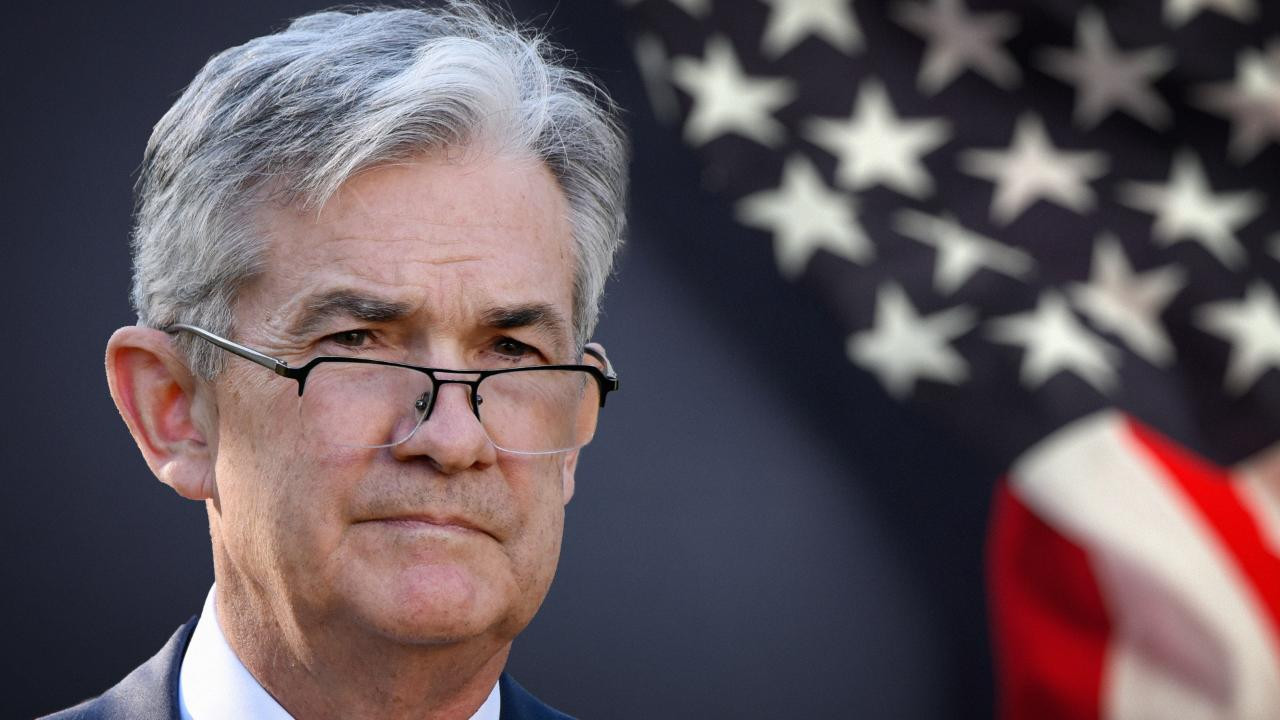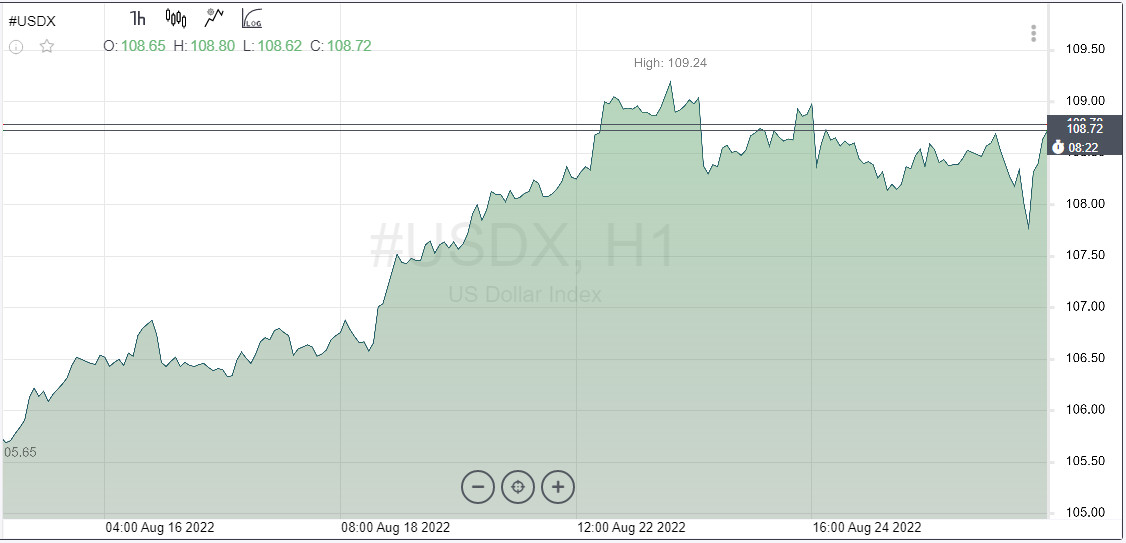
Federal Reserve Chairman Jerome Powell's speech at the Jackson Hole symposium took place on Friday, which investors have been anticipating since the beginning of the week, rocking volatility in the markets. What did the head of the Fed say? In general, his speech was within the forecast, the hawkish mood remained strong, but traders hoping to recognize the notes of a dovish mood in the speech were not lucky.
Wall Street went into a deep negative after Powell said that the country's economy will need a tight monetary policy for an indefinite time, that is, until inflation is brought under control. He also made it clear that tight monetary policy will not pass without a trace. This process, which is so necessary now, will cause a slowdown in economic growth and weaken the labor market. Households and businesses will feel some "pain".
As for the signals for the upcoming meeting in September, which investors have been waiting for, everything is also vague here. The market has not been able to hear clear answers about the rate hike. Officials must approve an increase of either 50 basis points or 75 basis points.
Meanwhile, interest rate futures tied to expectations about Fed policy fell on Friday immediately after Powell's speech, reflecting an increase in the probability of a rate hike for the third time in a row by 75 basis points.
The infusion was hawkish, Powell's message, judging by the movements of the markets, was clear to everyone. The Fed has a long way to go and a lot of work to do before the central bank starts normalizing monetary policy.
The yield on 2-year US Treasury bonds, which usually moves in sync with interest rate expectations, rose by 4.9 basis points to 3.423%. This is slightly below the annual high recorded in June. The yield on 10-year securities rose by about 3 basis points to 3.0501%.

In the currency markets, the dollar reduced its losses against a basket of currencies after Powell's remarks. The indicator has risen above 108.00 again. Dollar bulls are aiming for the annual high, broken at the beginning of the week – just above 109.00.
Next, traders will go for a new trophy in the form of a mark of 109.29. Above is the peak of September 2002 at the level of 109.77 before the round level of 110.00.
The British pound suffered from Powell's speech. The GBP/USD pair was on its way to a weekly decline on Friday. Amid the resumption of long positions on the dollar, the quote plunged to the area of 1.1765.
Pound traders also estimated on this day the likely impact of an 80% increase in British household electricity bills since October. This growth indicates that there are serious problems that need to be overcome through urgent and decisive government intervention.
Inflation in the UK has reached a 40-year high, and the country's central bank has warned of a prolonged recession. Some are betting that the increase in spending will lead to an increase in government support for households.
"Leveraged funds have significantly increased long positions on the pound sterling in recent weeks. One of the possibilities for this may be the belief that the new UK government will act decisively to protect British households," MUFG comments on the situation.
However, this bet has a high risk, given the lack of confidence that Liz Truss, the candidate for the post of prime minister of the United Kingdom, does not plan to help households. Truss has previously stated that she prefers to focus on tax cuts.
 English
English 
 Русский
Русский Bahasa Indonesia
Bahasa Indonesia Bahasa Malay
Bahasa Malay ไทย
ไทย Español
Español Deutsch
Deutsch Български
Български Français
Français Tiếng Việt
Tiếng Việt 中文
中文 বাংলা
বাংলা हिन्दी
हिन्दी Čeština
Čeština Українська
Українська Română
Română

